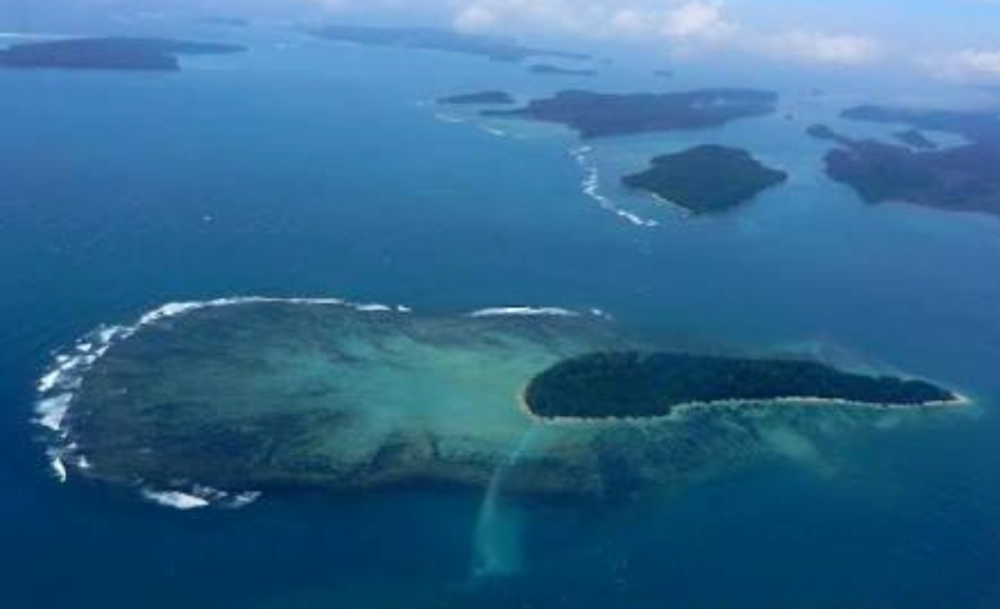
We live in the digital world, where everything is just one click away from us. From watching movies to paying bills, from shopping online to booking tickets, everything is in our hands. Life seems impossible without internet connectivity. It becomes the basic requirement of every household.
Despite this, there remain several regions in India with a lack of speedy access to the internet. One such region is Andaman and Nicobar island, the most fascinating UT of Indian Union, located in an area of about 8243 sq. Km. in the Bay of Bengal.

The internet connectivity in Andaman and Nicobar Islands has become a constant source of frustration and disappointment to Islanders as it doesn’t have advanced technological facilities. Unlike Mainland where connectivity is from tower to tower, in A & N Islands the signal goes to satellite and comes back to land and it takes time and this is the reason for slow internet.
Landline-linked broadband Internet is the only reliable method of internet connectivity for many residing in A&N island. Thus, a strong data connection is rare here.
Only two private players, Airtel and Vodafone provide patchy 2-G internet services in the urban pockets. While BSNL is the sole provider of telecoms to the Nicobar Islands in the South, according to data published by The Hindu.
When the entirety of India witnessed Jio 4G revolution, the Islanders were five years behind. As the world is going to witness the wonders of 5G, in the Island, 3G and 4G yet to become a trend.
For travellers, those visiting the island, mobile networks in Andaman Nicobar have been a huge concern too. Know their bitter experiences shared by Andaman travel guide.

Largely affected are the students who are rendered helpless due to unprecedented COVID-19 crisis and an unplanned lockdown, with most of them not having carried their books when moving back to their homes. Given the technical nature of the curriculum, students in Andaman are also unable to learn off the backs of YouTube or other websites owing to unstable WiFi, according to a report by Firstpost.
Today, 10th August is a special day for my sisters and brothers of Andaman and Nicobar Islands. At 10:30 this morning, the submarine Optical Fibre Cable (OFC) connecting Chennai and Port Blair will be inaugurated.https://t.co/lJGVG3VAmJ
— Narendra Modi (@narendramodi) August 10, 2020
“Inauguration of the submarine Optical Fibre Cable in Andaman and Nicobar Islands ensures High-speed broadband connectivity. Fast and reliable mobile and landline telecom services. Big boost to the local economy. Delivery of e-governance, telemedicine, and tele-education,” he added.
It was supposed to be inaugurated in March by President Ram Nath Kovind. However, it got delayed due to the Covid-19 lockdown.
The foundation stone of this project was laid down by the PM on December 30, 2018, at Port Blair.
An estimated 2,300 km of Submarine Optical Fibre Cable (OFC) has been laid at an expenditure of about Rs 1,224 crore. The connectivity project was funded by the Centre through the Universal Service Obligation Fund under the Ministry of Communications. Bharat Sanchar Nigam Limited (BSNL) executed the project while Telecommunications Consultants India Limited (TCIL) was the technical consultant.
A day before inaugurating a submarine optical fibre cable facility for Andaman and Nicobar Islands, Prime Minister Narendra Modi asserted on Sunday that it will ensure that the region faced no problem in getting virtually connected to the outside world as he highlighted his government’s various development initiatives for the union territory.
Speaking at an interaction with BJP workers from the distant region, he noted that the islands are strategically located and can become a key centre for global sea trade, stressing that the central government is working to make it a blue economy hub and also an important place for maritime start-ups.
Modi said 12 islands of Andaman and Nicobar have been selected for high-impact projects, with an emphasis on boosting trade of sea-based, organic, and coconut-based products of the region.
The region will play an important role in his government’s self-reliant India project and the growth of new India, the prime minister said, while referring to the ongoing work to expand Port Blair airport and boost air connectivity.
Over 300 km of the national highway in the region is expected to be completed in record time, he said.




